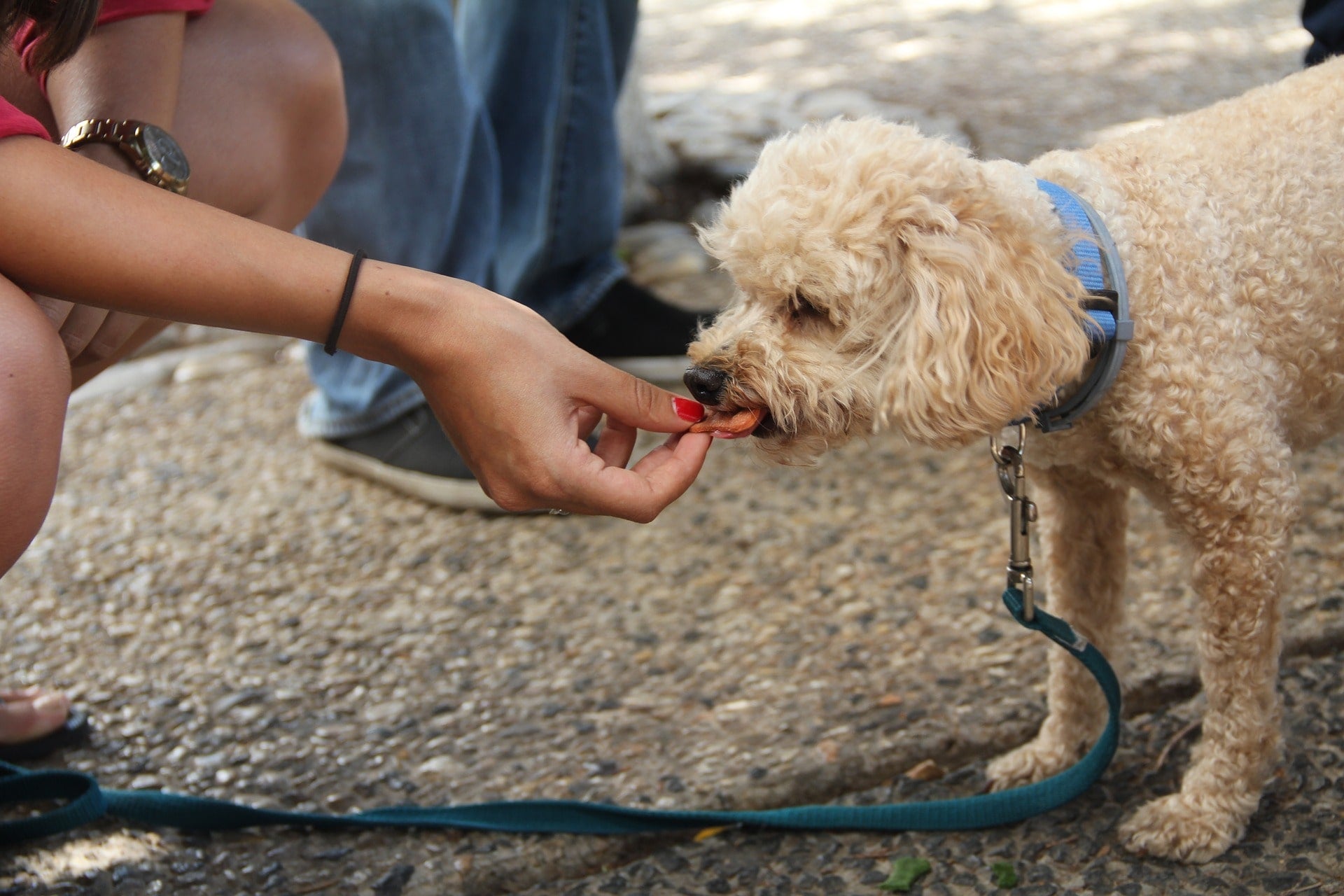Leaky gut syndrome (also known as dysbiosis) is a condition in which the lining of the small intestine becomes damaged. When this happens, toxins and particles of undigested food can pass into the bloodstream. As a result, the immune system becomes overloaded and serious health problems can develop.
In today's post, we'll take a look at the causes and symptoms of leaky gut syndrome in pets. We'll also share some practical tips to help you prevent and treat the condition, and explain how therapeutic-grade coconut oil can support your pet's digestive health.
Causes of Leaky Gut Syndrome in Pets
Did you know that your pet's gut is the foundation of their overall health? The gut is responsible for three main functions: digesting food, absorbing nutrients from food and supplements, and preventing toxins from entering the bloodstream.
In order to function properly, the gut relies on a complex ecosystem of bacteria known as the microbiome. And since more than 80% of the immune system resides in the gut, a balanced microbiome is directly linked to your pet's ability to fight disease and remain healthy throughout their lifetime.
Most experts agree that leaky gut syndrome is caused by an imbalance in the natural microbiome of the gut. This can be caused by a number of factors, including improper nutrition, overuse of certain medications such as antibiotics and steroids, and exposure to toxins. The condition may also occur as a result of vaccinations or stress.
Symptoms of Leaky Gut Syndrome in Pets
The most common symptoms of leaky gut syndrome in pets are diarrhea, gas, and bloating. Other signs of the condition include abdominal discomfort, allergies, joint pain, and illnesses such as immune system disorders, cystitis, asthma, and certain types of cancer. Leaky gut syndrome in pets has also been linked with hyperactivity and other behavioral changes.
Preventing and Treating Leaky Gut Syndrome in Pets
In this section of the post, we'll share some tips for preventing and treating leaky gut syndrome in pets. Please follow these recommendations in conjunction with advice from a qualified holistic veterinarian.
The Role of Diet
Highly processed commercial diets are high in sugar, refined starches, fillers, and chemical additives. They are pro-inflammatory, difficult to digest, and one of the leading causes of gut irritation and leaky gut syndrome in pets. The best foods to feed your pet are living, raw, fresh, and species-appropriate. These foods support your pet's health throughout their lifetime, and protect them from conditions such as leaky gut syndrome.
These days, it's actually quite simple to choose a species-appropriate raw food diet that will keep your pet happy and healthy for years to come. Your pet can thrive on both a home-prepared diet or a high-quality commercial diet that's formulated to meet their nutritional needs. For more information on choosing a complete and balanced species-appropriate diet for your pet, please check out our previous post.

Dietary Supplements
Probiotics, prebiotics, and digestive enzymes support your pet's gastrointestinal tract, and can help prevent and treat disorders such as leaky gut syndrome. The difference between these supplements can be confusing, so here's a quick rundown of each:
Probiotics
Probiotics are beneficial bacteria that work with the good bacteria present in your pet's gut. Together, these types of bacteria help break down and digest food and keep harmful bacteria from spreading and causing illness.
Probiotics help maintain healthy levels of good bacteria in the intestine, keeping your pet's digestive system running smoothly, boosting the immune system, and supporting general bodily health.
Prebiotics
Prebiotics serve a different purpose in your pet's digestive tract. Rather than being a type of healthy bacteria, they feed the good bacteria in the gut. For this reason, they are often used together with probiotics to support healthy bacterial growth.
A word of caution, for pets with pre-existing gastrointestinal health issues, prebiotics can be damaging to health as they feed the elevated levels of bad bacteria present in an unhealthy gut. As always, consult with your veterinarian before introducing these supplements to your pet's diet.
Digestive Enzymes
Digestive enzymes are specialized proteins that break down and absorb the nutrients in food. The four basic types of digestive enzymes are protease, amylase, lipase, and cellulase. They help break down and digest protein, carbohydrates and starches, fat, and fiber.
Most digestive enzymes are secreted by the pancreas and enter the small intestine via the pancreatic duct. Your pet's pancreas produces protease, amylase, and lipase, however, their production decreases with age where it is not enough to completely digest food. Many pets are lacking in appropriate levels of digestive enzymes, which can result in poor digestion, reduced immune function and other health complications such as leaky gut syndrome.
Adding digestive enzymes to your pet's diet can be incredibly beneficial for health. Benefits include improved digestion and cellular function, increased nutrient absorption, detoxifying effects, and an improved immune system.
Therapeutic-Grade Coconut Oil
Therapeutic-grade coconut oil has natural anti-inflammatory properties that help heal injuries in the digestive tract and prevent chronic inflammation. Coconut oil is especially effective at healing injuries in the mucosal lining of your pet's intestine that can lead to leaky gut syndrome.
Coconut oil's antibacterial, antiviral and antifungal properties also promote healthy digestion, and the medium-chain fatty acids in the oil prevent undue strain on the digestive tract. When supplementing your pet's diet with coconut oil, make sure to choose a high-quality oil such as CocoTherapy virgin coconut oil. Our oil contains high levels of MCFAs such as lauric acid – the healthy fats that promote digestive health.
Avoiding Other Risk Factors
Feeding the right foods and supplements can help prevent and treat leaky gut syndrome in pets. In addition, it's important to avoid other risk factors that can lead to the development of the condition. As we mentioned earlier, these include:
- Overuse of certain medications
- Exposure to toxins
- Vaccines
- Stress
In an article for Dogs Naturally Magazine, Julie Anne Lee, DCH, RCSHom, recommends the following steps to prevent leaky gut syndrome in pets:
- Stop feeding processed foods and feed a raw, species appropriate diet.
- Stop routine vaccinations; instead ask your vet for blood titer tests to measure antibody levels. Get a copy of the results and ask a holistic vet to interpret them, as there are differing opinions on what the results actually mean.
- Stop using chemical flea and tick products that contain pesticides. Use natural products and protocols with proven success.
- Stop all drugs where possible.
- Determine your dog’s source of stress. Make the time to go for longer walks or hire a dog walker or someone to check in on them during the day or even add a playmate.*
*This also applies to cats. For more information on reducing stress in pets, please refer to our previous post, Environmental Enrichment for Pets - What It Is and Why It Matters.
Have any questions for the CocoTherapy team? Let us know in the comments section below.



